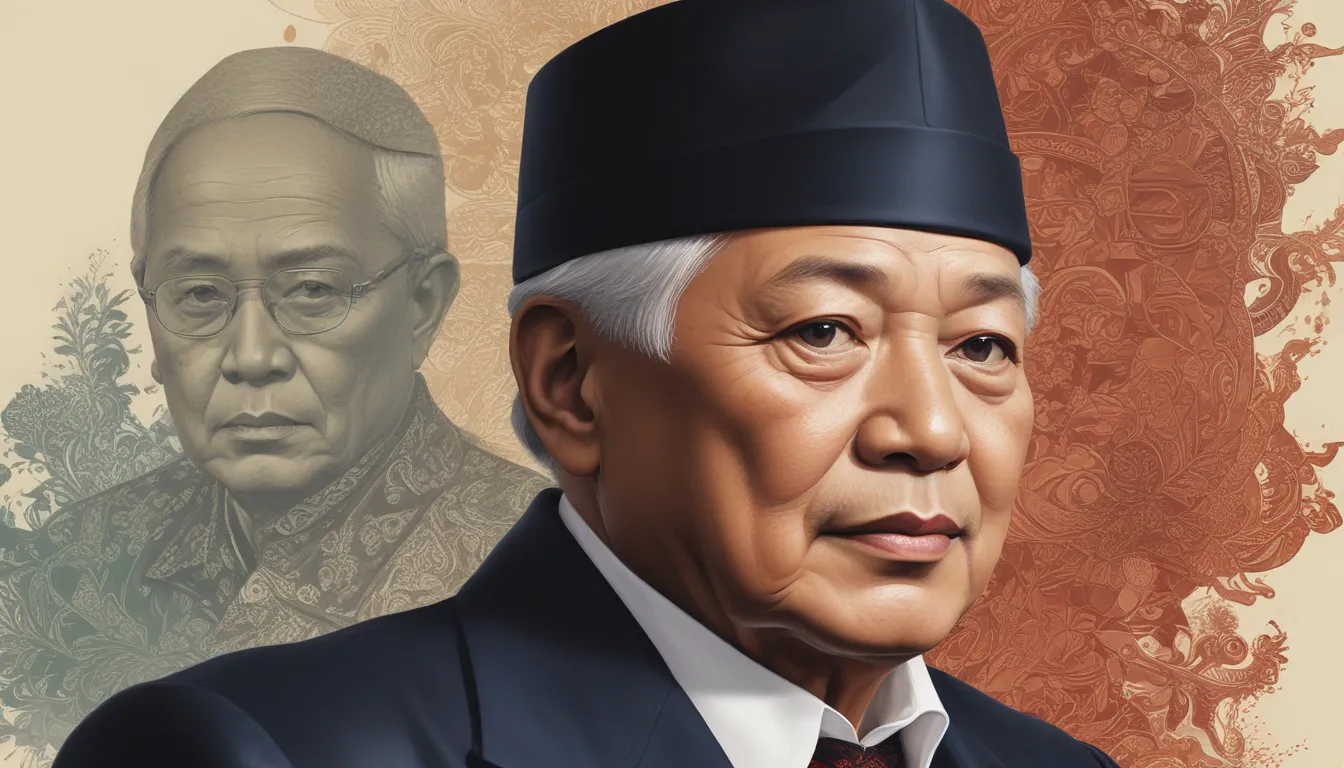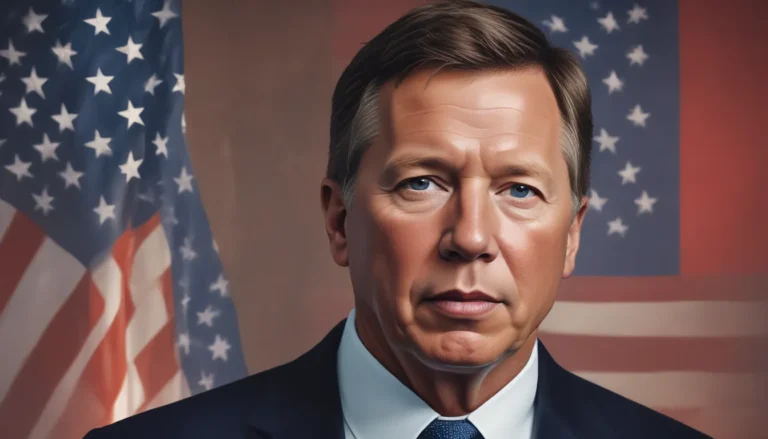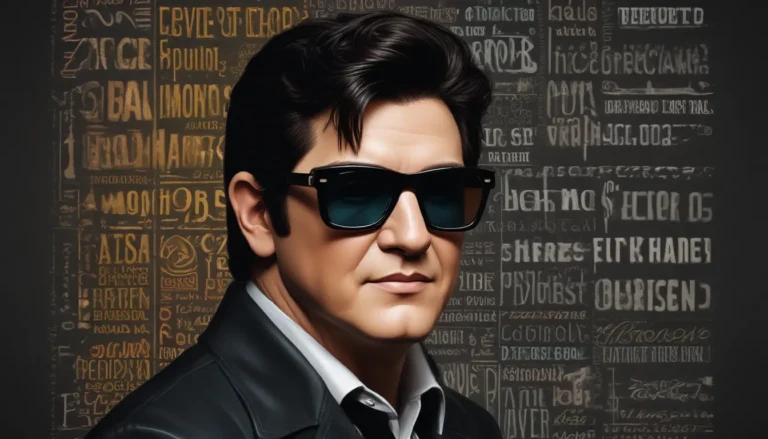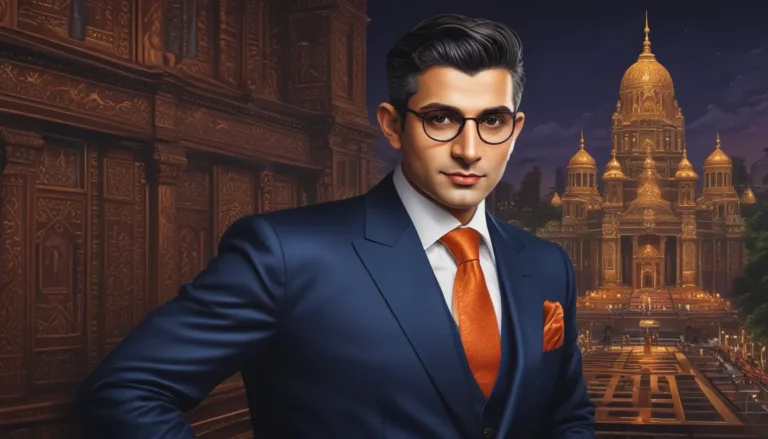The images in our articles may not match the content exactly. They are used to grab your attention, not to show the exact details in the text. The images complement the text but do not replace it.
Indonesia’s history is rich with influential figures who have shaped the nation’s trajectory in profound ways. Among them stands Suharto, the former President of Indonesia, whose reign from 1967 to 1998 left an indelible mark on the country’s political, social, and economic landscape. As a figure of immense complexity and significance, Suharto’s legacy continues to spark debate and reflection among historians and scholars.
In this article, we will unravel the enigma of Suharto by delving into 10 unbelievable facts that offer insight into his life, rule, and the impact he had on Indonesia and the world. From his rise to power to his economic policies and eventual fall from grace, these facts will provide a comprehensive understanding of the complexities surrounding Suharto’s leadership.
The Rise to Power: A Military General Turned President
Suharto, born in 1921, rose to prominence as a military general before assuming the role of the second President of Indonesia in 1967. His ascent to power came on the heels of an alleged communist coup attempt, which led to the establishment of the New Order regime that defined his 32-year rule.
The Longest-Serving Indonesian President: An Unprecedented Tenure
Suharto’s presidency stands as the longest in Indonesian history, spanning over three decades. During his tenure, he wielded significant influence over the country’s political landscape and implemented sweeping economic reforms that reshaped Indonesia’s economy.
The Mystery of Birth: Kemusuk Village and Enigmatic Origins
One of the intriguing mysteries surrounding Suharto is the exact location of his birthplace. While commonly believed to have been born in the Kemusuk village in Yogyakarta, the precise house and even the specific day of his birth remain subjects of debate and speculation.
Political Suppression: Authoritarian Rule and Human Rights Violations
Suharto’s rule was characterized by authoritarianism and the suppression of political dissent. Critics point to the imprisonment, exile, and even killings of individuals opposed to his regime as evidence of human rights abuses during his presidency.
The Dark Chapter: The 1965 Massacre and Allegations of Involvement
One of the most notorious events of Suharto’s rule is the 1965 massacre, where an estimated 500,000 to one million people lost their lives. Suspected communists, intellectuals, and ethnic Chinese were targeted in the violence, leading to ongoing controversy and debate in Indonesian society.
Economic Growth Amid Controversy: Industrialization and Foreign Investment
Despite the controversies surrounding his rule, Suharto oversaw remarkable economic growth in Indonesia. His policies focused on promoting industrialization, agricultural development, and attracting foreign investment, resulting in significant progress and improved infrastructure in the country.
The Shadow of Corruption: Allegations of Widespread Wealth Accumulation
Suharto’s presidency was plagued by allegations of widespread corruption, with reports suggesting that he and his family amassed considerable wealth through questionable means. While exact figures remain elusive, estimates place his family’s wealth in the billions of dollars.
The Fall from Grace: Protests, Turmoil, and Resignation
In 1998, Suharto faced widespread protests and economic turmoil that culminated in his resignation as President, marking the end of his authoritarian regime. This pivotal moment ushered in a new era for Indonesia characterized by democratic reforms and political transition.
The Enduring Legacy: Debates and Reflections on Suharto’s Rule
The legacy of Suharto continues to be a subject of debate and reflection in Indonesia. While some credit him with stabilizing the country and fostering economic growth, others highlight the human rights abuses and corruption that marred his regime. The ongoing discourse serves as a testament to the complexities of his leadership.
In conclusion, the 10 Unbelievable Facts About Suharto offer a glimpse into the multifaceted nature of his reign as President of Indonesia. By exploring these facts, we gain a deeper understanding of the challenges, achievements, and controversies that defined his legacy and continue to shape Indonesia’s political landscape to this day.
Reflecting on Suharto’s Impact: A Legacy of Contradictions
Suharto was undeniably a polarizing figure whose rule left an enduring impact on Indonesia. From his rise to power in the aftermath of the 1965 coup attempt to his resignation amid protests and turmoil in 1998, Suharto’s presidency was marked by both remarkable achievements and allegations of corruption and human rights violations.
While opinions on Suharto’s legacy vary, the 10 unbelievable facts presented in this article shed light on lesser-known aspects of his life and rule. From his staggering wealth to his authoritarian control over the country, these facts offer a comprehensive view of the complexities surrounding Suharto’s reign and its lasting repercussions on Indonesia.
As we navigate the intricacies of Suharto’s legacy, it is crucial to acknowledge the diverse perspectives and interpretations that shape our understanding of his rule. Like many influential leaders throughout history, Suharto’s legacy is defined by a blend of admiration, criticism, and ongoing debate. Through examining his accomplishments, failures, and the enduring effects of his presidency, we gain valuable insight into the nuances of leadership and governance.
FAQs
Was Suharto the longest-serving leader of Indonesia?
No, Suharto’s 32-year tenure as President of Indonesia from 1967 to 1998 does not surpass the 22-year presidency of Sukarno, the first President of Indonesia who served from 1945 to 1967.
How did Suharto accumulate his wealth?
Suharto and his family’s wealth, believed to be in the billions of dollars, was reportedly amassed through corruption and nepotism during his presidency, although exact figures remain a subject of speculation.
Did Suharto face major challenges during his rule?
Yes, Suharto encountered significant challenges during his rule, including the economic crisis of 1997-1998, which led to widespread protests and demands for political reform, ultimately culminating in his resignation.
What were the allegations against Suharto regarding human rights violations?
Suharto faced allegations of human rights violations, particularly in the aftermath of the 1965 coup attempt, where hundreds of thousands of people were reportedly killed in the ensuing violence.
How did Suharto’s rule impact the economy of Indonesia?
Suharto’s economic policies, focused on export-oriented industrialization and foreign investment, facilitated significant economic growth in Indonesia. However, these policies also contributed to income inequality and the consolidation of wealth within his inner circle.
As we continue to delve into the complex legacy of Suharto, we uncover a tapestry of contradictions that define his rule and its enduring impact on Indonesia’s present-day landscape. Through reflection and dialogue, we gain a deeper appreciation for the intricacies of leadership, governance, and the complexities that shape our understanding of history.
By focusing on key aspects of Suharto’s life and rule, this article provides readers with a comprehensive exploration of his legacy while encouraging critical thinking and reflection on his impact on Indonesia and beyond.






